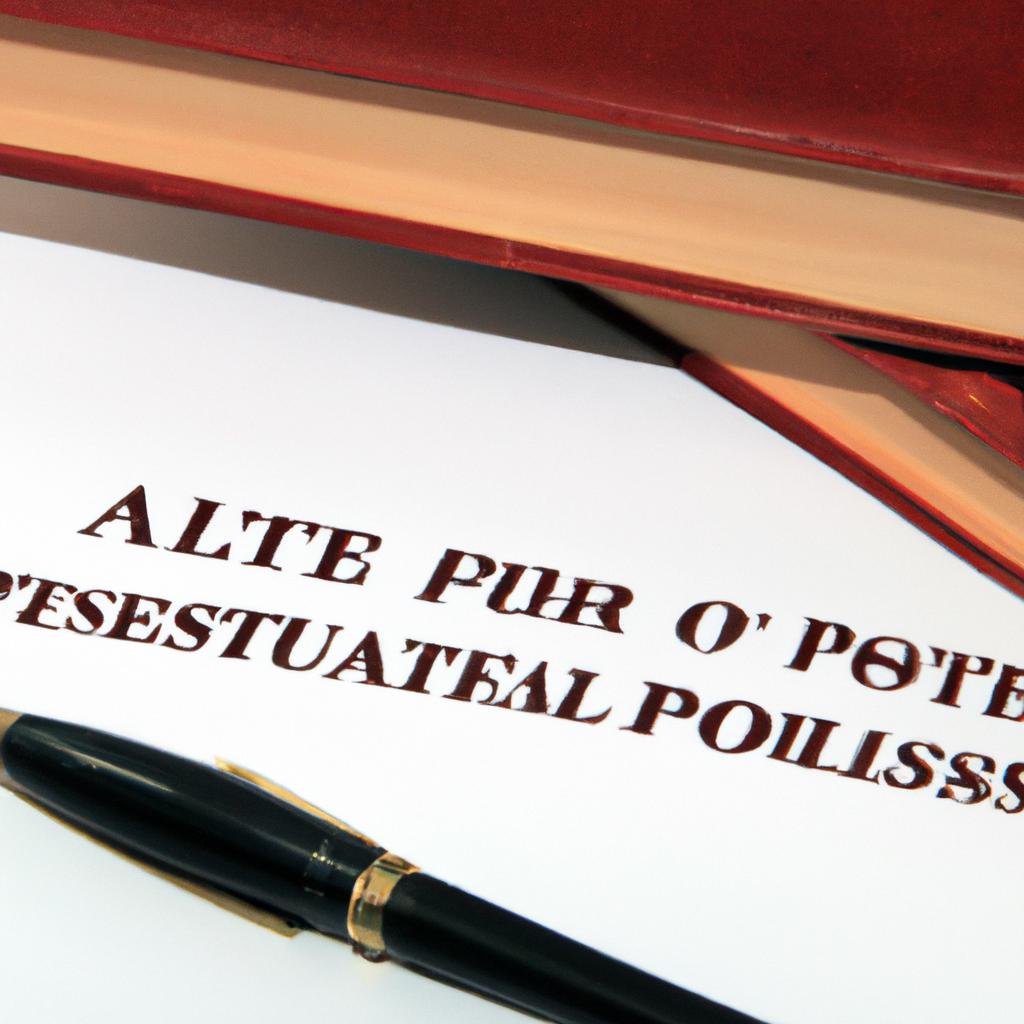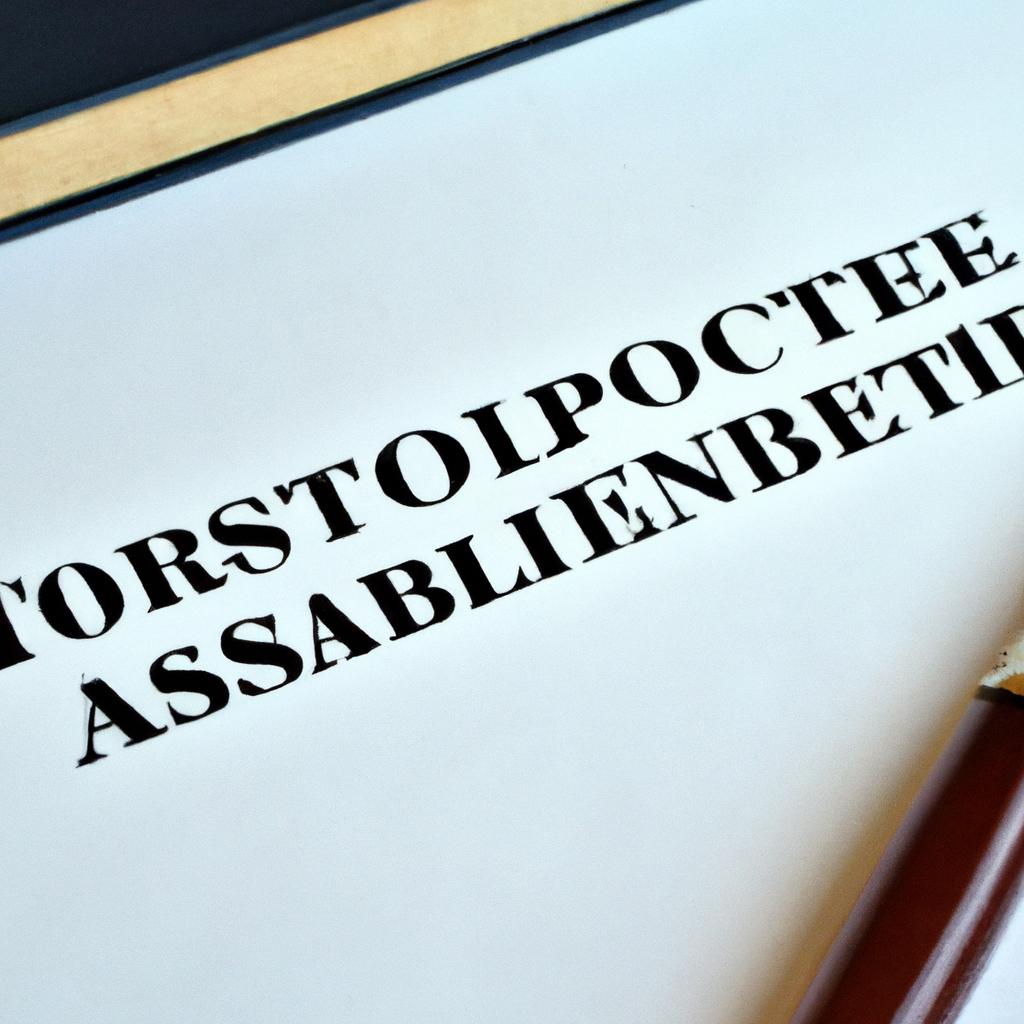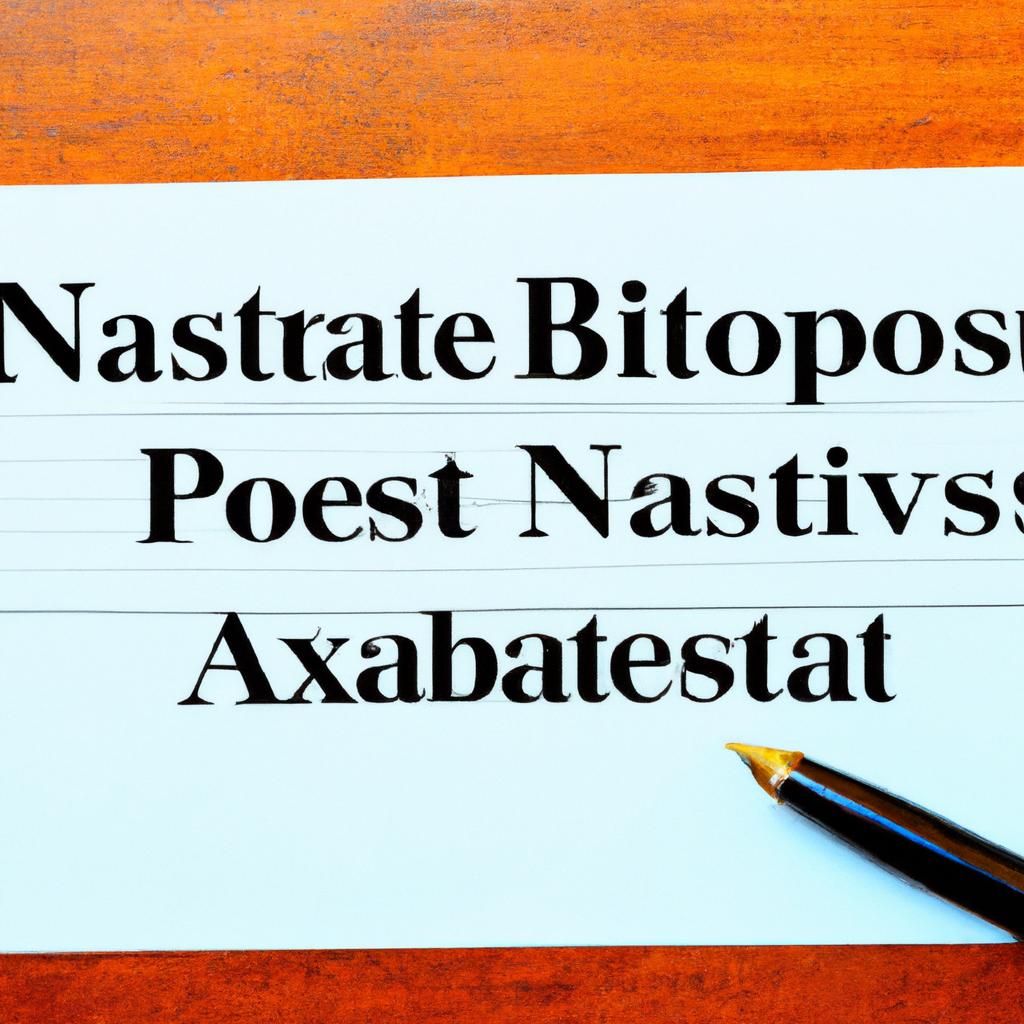In the realm of estate planning, it is crucial to possess a comprehensive understanding of the assets that constitute an individual’s estate. However, not all assets fall within this categorization, leading to potential complications in the distribution of one’s possessions upon their passing. As seasoned legal professionals at Morgan Legal Group, located in the heart of New York City, we aim to elucidate the intricacies of assets that are not considered part of an estate. By delving into this topic, we hope to provide clarity and guidance for those navigating the complexities of estate planning, probate, elder law, Wills, and trusts.
Assets Excluded from Estate for Probate Purposes
When it comes to estate planning, it’s important to understand which assets are not considered part of an estate for probate purposes. These assets are typically excluded from the probate process, meaning they do not need to go through the court-supervised process of distributing assets to beneficiaries. Some common assets that are not considered part of an estate include:
- Jointly owned property: Assets that are jointly owned with rights of survivorship automatically pass to the surviving owner.
- Retirement accounts: Accounts such as 401(k)s and IRAs with designated beneficiaries are not included in the probate estate.
- Life insurance proceeds: Death benefits from life insurance policies go directly to the named beneficiaries.
By understanding which assets are excluded from the estate for probate purposes, individuals can better plan for the distribution of their assets and ensure that their wishes are carried out efficiently and effectively.

Understanding Non-Probate Assets in Estate Planning
When it comes to estate planning, it’s crucial to understand which assets are considered non-probate assets. These assets do not go through the probate process upon the owner’s death and are not considered part of the individual’s estate.
Non-probate assets include:
- Joint tenancy property: Property owned in joint tenancy with right of survivorship automatically passes to the surviving co-owner.
- Retirement accounts: Assets in retirement accounts, such as 401(k) and IRA accounts, pass directly to the designated beneficiaries.
- Life insurance policies: Proceeds from life insurance policies go directly to the named beneficiaries.

Types of Property Not Included in an Estate
When it comes to estate planning, it is important to understand which assets are not considered part of an estate. These assets do not pass through the probate process and are not distributed according to the terms of the will. Knowing what assets fall outside of the estate can help individuals better plan for the distribution of their wealth.
Some common types of property that are not included in an estate include:
- Jointly owned property: Property owned jointly with rights of survivorship automatically passes to the surviving owner.
- Retirement accounts: Assets held in retirement accounts, such as 401(k) plans and IRAs, pass directly to the named beneficiary.
- Life insurance proceeds: The death benefit from a life insurance policy?”>life insurance policy goes directly to the named beneficiary and is not considered part of the estate.

Strategies for Maximizing Non-Probate Assets in Estate Plans
Non-probate assets are crucial components of an estate plan as they can help avoid the lengthy and costly probate process. By strategically maximizing non-probate assets, individuals can ensure that their assets are distributed according to their wishes in a timely and efficient manner. Some of the most common non-probate assets include:
- Jointly owned property: Property owned jointly with rights of survivorship automatically passes to the surviving owner upon the death of one owner.
- Retirement accounts: Assets held in retirement accounts, such as 401(k)s and IRAs, pass directly to the named beneficiaries outside of probate.
- Life insurance policies: Death benefits from life insurance policies are typically paid directly to the named beneficiaries without going through probate.
By strategically designating non-probate assets and ensuring proper titling and beneficiary designations, individuals can streamline the estate administration process and provide their loved ones with a smoother transition of assets. It is important to work with experienced estate planning professionals, such as our team at Morgan Legal Group in New York City, to develop a comprehensive estate plan that includes strategies for maximizing non-probate assets.
Q&A
Q: What assets are not considered part of an estate?
A: When a person passes away, not all of their assets are considered part of their estate. Certain assets fall outside of the probate process and are not included in the estate for distribution.
Q: Can you give examples of assets that are not part of an estate?
A: Yes, some common examples include life insurance proceeds, retirement accounts with designated beneficiaries, jointly owned property with rights of survivorship, assets held in a living trust, and assets held in pay-on-death accounts.
Q: Why are these assets not considered part of the estate?
A: These assets are not considered part of the estate because they have designated beneficiaries or co-owners who automatically inherit them upon the individual’s death. This allows for a quicker and simpler transfer of these assets outside of the probate process.
Q: What are the benefits of having assets that are not considered part of an estate?
A: One of the main benefits is that these assets are not subject to probate court proceedings, which can be time-consuming and expensive. This can help ensure a more efficient and timely distribution of assets to beneficiaries. Additionally, having assets outside of the estate can provide increased privacy and control over how these assets are transferred after death.
To Conclude
In conclusion, understanding what assets are not considered part of an estate is crucial for effective estate planning. By identifying and properly managing these assets, individuals can ensure their loved ones are provided for and their final wishes are carried out smoothly. Remember, seeking advice from legal and financial professionals is always recommended to navigate the complexities of estate planning. As you prepare for the future, keep in mind the assets that fall outside of your estate and strategize how to best protect and distribute your wealth for generations to come.
 As you begin to plan for the future and consider estate planning, it’s important to understand exactly what constitutes an estate. In simple terms, an estate is the total sum of an individual’s assets and liabilities at the time of their death. This includes everything from bank accounts and investments to real estate and personal belongings.
As you begin to plan for the future and consider estate planning, it’s important to understand exactly what constitutes an estate. In simple terms, an estate is the total sum of an individual’s assets and liabilities at the time of their death. This includes everything from bank accounts and investments to real estate and personal belongings.
But what many people may not realize is that there are certain assets that are not considered part of an estate. These assets are exempt from the probate process and are distributed in a different manner. Understanding what these assets are can help you make more informed decisions when it comes to estate planning. In this article, we’ll explore the assets that are not considered part of an estate and how they may affect your overall estate planning strategy.
1. Assets held in a trust
One of the most common ways to avoid probate and exclude assets from an estate is by creating a trust. Trusts allow individuals to transfer assets to a designated trustee who manages and distributes the assets according to the terms of the trust. This can be done during one’s lifetime or after their death.
Assets held in a trust are not considered part of an individual’s estate because technically, they no longer belong to that individual. Instead, they belong to the trust and are managed by the trustee. This can be beneficial for several reasons, including avoiding the time and expense of probate and maintaining privacy as trust documents are not made public.
2. Life insurance proceeds
Life insurance policies are designed to provide financial support for loved ones in the event of an individual’s death. Because the proceeds of a life insurance policy are paid directly to the designated beneficiaries, they are not considered part of an individual’s estate.
This means that the proceeds are not subject to the probate process and are typically received by beneficiaries quickly and without any additional costs. However, it’s important to note that if the policy lists the deceased individual’s estate as the beneficiary, the proceeds will then become part of the estate and be subject to the probate process.
3. Retirement accounts
Retirement accounts, such as 401(k)s and IRAs, are also not considered part of an estate. Similar to life insurance policies, these accounts have designated beneficiaries who receive the assets upon the account holder’s death. This allows the funds to avoid the probate process and be distributed directly to the beneficiaries.
It’s important to regularly review and update beneficiary designations on retirement accounts to ensure they align with your wishes. If no beneficiaries are listed or if the listed beneficiaries have all passed away, the retirement account will become part of the estate and be subject to probate.
4. Jointly owned property
Property that is owned jointly with another individual, such as a spouse or business partner, is not considered part of an estate. In the case of joint tenancy with right of survivorship (JTWROS), the ownership of the property automatically transfers to the surviving owner upon the death of the other owner.
This can be beneficial in estate planning as it allows for a smooth transfer of ownership without involving the probate process. However, it’s important to be mindful of the tax implications of jointly owned property, as the transfer of ownership may have tax implications.
5. Payable-on-death accounts
Payable-on-death (POD) accounts, also known as “transfer-on-death” or “TOD” accounts, are financial accounts that allow individuals to name a beneficiary who will receive the assets upon their death. This includes bank accounts, investment accounts, and even some real estate.
Similar to life insurance policies and retirement accounts, POD accounts bypass the probate process and are distributed directly to the named beneficiary. It’s important to note that these accounts are subject to state laws, so it’s best to consult with an estate planning attorney to ensure all legal requirements are met.
In conclusion, not all assets are considered part of an estate. Assets held in trusts, life insurance policies, retirement accounts, joint property, and payable-on-death accounts are all examples of assets that bypass the probate process and are considered separate from an individual’s estate. Understanding these assets and how they may affect your estate planning is crucial in creating a comprehensive and effective plan for the future.
It’s important to regularly review and update your estate plan as your assets and circumstances change. Consult with an experienced estate planning attorney to ensure your wishes are carried out and to make sure all legal requirements are met. An effective estate plan can provide peace of mind and ensure that your loved ones are taken care of according to your wishes.

